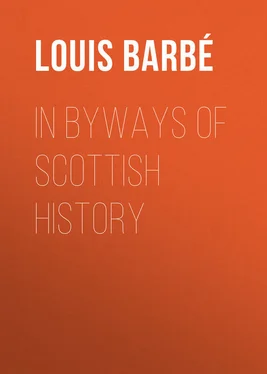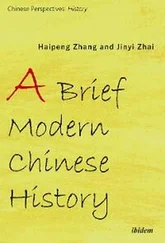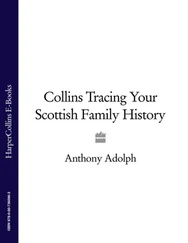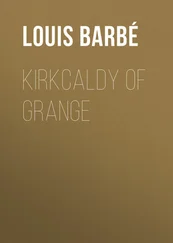Louis Barbé - In Byways of Scottish History
Здесь есть возможность читать онлайн «Louis Barbé - In Byways of Scottish History» — ознакомительный отрывок электронной книги совершенно бесплатно, а после прочтения отрывка купить полную версию. В некоторых случаях можно слушать аудио, скачать через торрент в формате fb2 и присутствует краткое содержание. Жанр: foreign_antique, foreign_prose, на английском языке. Описание произведения, (предисловие) а так же отзывы посетителей доступны на портале библиотеки ЛибКат.
- Название:In Byways of Scottish History
- Автор:
- Жанр:
- Год:неизвестен
- ISBN:нет данных
- Рейтинг книги:4 / 5. Голосов: 1
-
Избранное:Добавить в избранное
- Отзывы:
-
Ваша оценка:
- 80
- 1
- 2
- 3
- 4
- 5
In Byways of Scottish History: краткое содержание, описание и аннотация
Предлагаем к чтению аннотацию, описание, краткое содержание или предисловие (зависит от того, что написал сам автор книги «In Byways of Scottish History»). Если вы не нашли необходимую информацию о книге — напишите в комментариях, мы постараемся отыскать её.
In Byways of Scottish History — читать онлайн ознакомительный отрывок
Ниже представлен текст книги, разбитый по страницам. Система сохранения места последней прочитанной страницы, позволяет с удобством читать онлайн бесплатно книгу «In Byways of Scottish History», без необходимости каждый раз заново искать на чём Вы остановились. Поставьте закладку, и сможете в любой момент перейти на страницу, на которой закончили чтение.
Интервал:
Закладка:
As we have said, the Secretary's disgrace was not of long duration. About September he was reinstated in the Queen's favour, and in December received from her a dress of cloth of gold trimmed with silver lace: "Une vasquyne de toille d'or plaine auecq le corps de mesme fait a bourletz borde dung passement dargent". 69
On the 6th of January, 1567, William Maitland of Lethington and Mary Fleming were married at Stirling, where the Queen was keeping her court, and where she spent the last Twelfth-Tide she was to see outside the walls of a prison. The Secretary's wife, as Mary was frequently styled after her marriage, did not cease to be in attendance upon her royal cousin, and we get occasional glimpses of her in the troubled times which were to follow. Thus, on the eventful morning on which Bothwell's trial began, Mary Fleming stood with the Queen at the window from which the latter, after having imprudently refused an audience to the Provost-Marshal of Berwick, Elizabeth's messenger, still more imprudently watched the bold Earl's departure and, it was reported, smiled and nodded encouragement. Again, in the enquiry which followed the Queen's escape from Lochleven, it appeared that her cousin had been privy to the plot for her release, and had found the means of conveying to the royal captive the assurance that her friends were working for her deliverance: "The Queen", so ran the evidence of one of the attendants examined after the flight, "said scho gat ane ring and three wordis in Italianis in it. I iudget it cam fra the Secretar, because of the language. Scho said, 'Na, … it was ane woman. All the place saw hir weyr it. Cursall show me the Secretaris wiff send it, and the vreting of it was ane fable of Isop betuix the Mouss and the Lioune, hou the Mouss for ane plesour done to hir be the Lioune, efter that, the Lioune being bound with ane corde, the Mouss schuyr the corde and let the Lioune louss.'" 70
During her long captivity in England, the unfortunate Queen was not unmindful of the love and devotion of her faithful attendant. Long years after she had been separated from her, whilst in prison at Sheffield, she gives expression to her longing for the presence of Mary Fleming, and in a letter written "du manoir de Sheffield", on the 1st of May, 1581, to Monsieur de Mauvissiére, the French ambassador, she begs him to renew her request to Elizabeth that the Lady of Lethington should be allowed to tend her in "the valetudinary state into which she has fallen, of late years, owing to the bad treatment to which she has been subjected". 71
But the Secretary's wife had had her own trials and her own sorrows. On the 9th of June, 1573, her husband died at Leith, "not without suspicion of poison", according to Killigrew. Whether he died by his own hand, or by the act of his enemies, is a question which we are not called upon to discuss. The evidence of contemporaries is conflicting, "some supponyng he tak a drink and died as the auld Romans wer wont to do", as Sir James Melville reports; 72others, and amongst these Queen Mary herself, that he had been foully dealt with. Writing to Elizabeth, she openly gives expression to this belief: "the principal (of the rebel lords) were besieged by your forces in the Castle of Edinburgh, and one of the first among them poisoned".
Maitland was to have been tried "for art and part of the treason, conspiracy, consultation, and treating of the King's murder". According to the law of Scotland, a traitor's guilt was not cancelled by death. The corpse might be arraigned and submitted to all the indignities which the barbarous code of the age recognized as the punishment of treason. It was intended to inflict the fullest penalty upon Maitland's corpse, and it remained unburied "till the vermin came from his corpse, creeping out under the door of the room in which he was lying". 73In her distress the widow applied to Burleigh, in a touching letter which is still preserved. It bears the date of the 21st of June, 1573.
My very good Lord, – After my humble commendations, it may please your Lordship that the causes of the sorrowful widow, and orphants, by Almighty God recommended to the superior powers, together with the firm confidence my late husband, the Laird of Ledington, put in your Lordship's only help is the occasion, that I his desolat wife (though unknown to your Lordship), takes the boldness by these few lines, to humblie request your Lordship, that as my said husband being alive expected no small benefit at your hands, so now I may find such comfort, that the Queen's Majestie, your Sovereign, may by your travell and means be moved to write to my Lord Regent of Scotland, that the body of my husband, which when alive has not been spared in her hieness' service, may now, after his death, receive no shame, or ignominy, and that his heritage taken from him during his lifetime, now belonging to me and his children, that have not offended, by a disposition made a long time ago, may be restored, which is aggreeable both to equity and the laws of this realme; and also your Lordship will not forget my husband's brother, the Lord of Coldingham, ane innocent gentleman, who was never engaged in these quarrels, but for his love to his brother, accompanied him, and is now a prisoner with the rest, that by your good means, and procurement, he may be restored to his own, by doing whereof, beside the blessing of God, your lordship will also win the goodwill of many noblemen and gentlemen. 74
Burleigh lost no time in laying the widow's petition before Elizabeth, and on the 19th of July a letter written at Croydon was dispatched to the Regent Morton: "For the bodie of Liddington, who died before he was convict in judgment, and before any answer by him made to the crymes objected to him, it is not our maner in this contrey to show crueltey upon the dead bodies so unconvicted, but to suffer them streight to be buried, and put in the earth. And so suerly we think it mete to be done in this case, for (as we take it) it was God's pleasure he should be taken away from the execucion of judgment, so we think consequently that it was His divine pleasure that the bodie now dead should not be lacerated, nor pullid in pieces, but be buried like to one who died in his bed, and by sicknes, as he did." 75
Such a petitioner as the Queen of England was not to be denied, and Maitland's body was allowed the rites of burial. The other penalties which he had incurred by his treason – real or supposed – were not remitted. An Act of Parliament was passed "for rendering the children, both lawful and natural, of Sir William Maitland of Lethington, the younger, and of several others, who had been convicted of the murder of the King's father, incapable of enjoying, or claiming, any heritages, lands, or possessions in Scotland".
The widow herself was also subjected to petty annoyances at the instigation of Morton. She was called upon to restore the jewels which her royal mistress had given her as a free gift, and in particular, "one chayn of rubeis with twelf markes of dyamontis and rubeis, and ane mark with twa rubeis". 76Even her own relatives seemed to have turned against her in her distress. In a letter written in French to her sister-in-law, Isabel, wife of James Heriot of Trabroun, she refers to some accusation brought against her by her husband's brother, Coldingham – the same for whom she had interceded in her letter to Burleigh – and begs to be informed as to the nature of the charge made to the Regent, "car ace que jantans il me charge de quelque chose, je ne say que cest". 77The letter bears no date, but seems to have been penned when the writer's misery was at its sorest, for it concludes with an earnest prayer that patience may be given her to bear the weight of her misfortunes.
Better days, however, were yet in store for the much-tried Mary Fleming, for in February, 1584, the "relict of umquhill William Maitland, younger of Lethington, Secretare to our Soverane Lord", succeeded in obtaining a reversion of her husband's forfeiture. In May of the same year, 78the Parliament allowed "Marie Flemyng and hir bairns to have bruik and inioy the same and like fauour, grace and priuilege and conditioun as is contenit in the pacificatioun maid and accordit at Perthe, the xxiii day of Februar, the yeir of God Im Vc lxxxij yeiris".
Читать дальшеИнтервал:
Закладка:
Похожие книги на «In Byways of Scottish History»
Представляем Вашему вниманию похожие книги на «In Byways of Scottish History» списком для выбора. Мы отобрали схожую по названию и смыслу литературу в надежде предоставить читателям больше вариантов отыскать новые, интересные, ещё непрочитанные произведения.
Обсуждение, отзывы о книге «In Byways of Scottish History» и просто собственные мнения читателей. Оставьте ваши комментарии, напишите, что Вы думаете о произведении, его смысле или главных героях. Укажите что конкретно понравилось, а что нет, и почему Вы так считаете.












